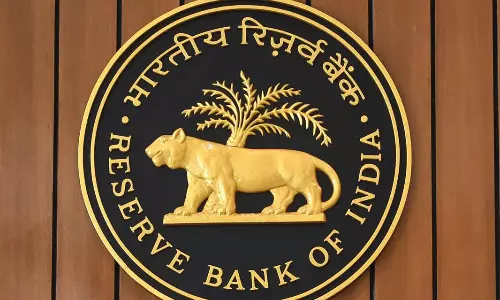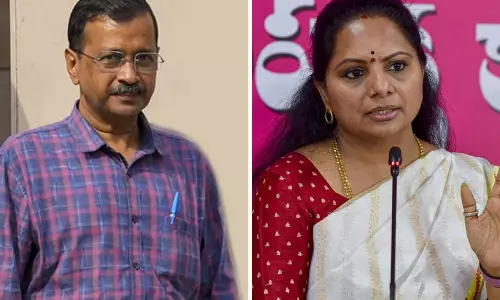
Elections need judicial audit
text_fieldsAs parliamentary elections approach its final phase, the concerns and bad experiences surrounding the election machinery have also increased. We had written a week ago that the impartiality and fairness of the Election Commission have come under a cloud to an unprecedented extent. And the latest events in West Bengal now prove that those reservations were not unfounded. Campaign in nine constituencies scheduled for polling in that state were cut short by the Commission.
The decision came following the clashes between Trinamool Congress and BJP going beyond control. It is true that the ruling parties at the Centre and in the state believe in muscle power rather than democratic process. The explanation of the Commission is that fear had spread in the state and therefore it had no option but to trim the time for campaign, in exercise of the powers conferred by Article 324 of the Constitution. Leave aside the irrationality of punishing parties other than those involved in the violence, the act of the Commission, a body bound to ensure fairness across all parties, in giving a privilege to BJP cannot be explained by any means. There is evident partiality in the curtailment of campaign time as applied.
The Commission assessed the violence as beyond control on Tuesday. The campaign time was terminated after a day – after two rallies by prime miniser Modi. The rallies planned by other parties for the following day could not be held due to the ban. Naturally, Opposition parties have alleged that this was partisan. Not only Trinamool Congress, but even Congress and CPM plus other parties have criticised the Commission's decision. The current Election Commission was hesitant to use its power in the beginning. When it ignored the hate speeches including that of Yogi Adityanath, the court had to remind it about the matter. Even after that, in many cases the Commission continued with its indifference. But now coming to the last phase, it reached a point of using excessive powers. The law provides that campaigns can be made upto 48 hours before the end of polling. Is the Commisson authorised to cut it short? Would it be that the Commission is not fully aware about what its powers are? It was the BJP rally led by Amit Shah that triggered the violence to a great extent. And it was BJP followers who demolished the statue of the cultural hero Ishwar Chandra Vidyasagar. The Commission removed the home secretary of Bengal and ADGP on that ground. Are they the only ones responsible for the deterioration of law and order? Although violence had happened during the six earlier phases of polling in Bengal, the Commission was not able to take precautionary measures. The Constitution and People's Representation Act give the Commission wide powers based on a premise of its morality and independent nature. Let the Commission ask itself whether it did justice to that confidence invested in it.
On no few occasions the Commission, which used excessive powers at a critical stage, showed inaction. The Congress had filed 11 complaints including those against Modi and Amit Shah, but the party points out that the Commission did not take any action on them. Although the Commission could well have invoked provisions including the Model Code of Conduct (MCC) against those like the prime minister who made communal statements, the poll body did nothing. Modi and his group had made several statements more serious than the ones by Mayawati and others which prompted campaign ban being imposed on them. If the speech made by the prime minister when MCC was in force, was a 'test dose' to the Commission, it failed in that test. The Commission could not do anything material in the matter of seeking votes in the name of the military. It is yet to be explained why the Commission has not been prepared to conduct election to Jammu & Kashmir state assembly. In a case in 1977, the Supreme Court itself had reminded citing the Constitution that the Election Commissioner is not man who can act arbitrarily. The actions of the current Election Commission can be examined as a whole on the basis of law and justice. For, it has been facing allegations right from the declaration of election.
The delay in announcing the election was unusual. That facilitated the prime minister and his party carrying on with utmost campaign on government expense without the restrictions of MCC. And coming to the last phase, the timings of the ban on campaign rallies appear to have been adjusted in such a way as to make room for the prime minister's rallies alone. Quite naturally, the impartiality of the Election Commission has come under question like never before. A social media jibe that better reflects the concern of the nation goes like this: 'The Election Commission refused to join NDA, but has agreed to offer all support from outside'. If we are insistent that this credibility crisis should not become one of democracy itself – or if independent democracy has to survive in India - the performance of Election Commission has to come under audit by a judicial machinery. Such an audit should also include in its scope the critical factors of election such as the expenditure of political parties and candidates, along with the working of the Commission. Let champions of democracy and Opposition parties exert required pressure for legal steps in this matter.























